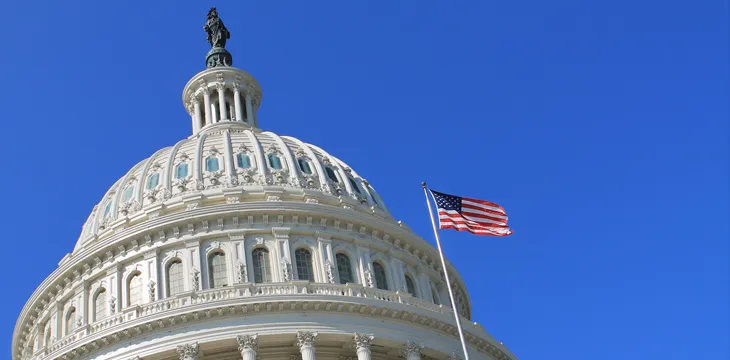|
Getting your Trinity Audio player ready...
|
U.S. Representatives Warren Davidson and Darren Soto continue to lead the charge to have cryptocurrency and blockchains find their rightful places in society. The lawmakers, who have been involved in a number of legislative efforts to regulate crypto and blockchains, have introduced two new bills that are designed to protect consumers with regards to digital currencies.
The first bill is House Resolution 922 (HR 922), Virtual Currency Consumer Protection Act of 2019. It has found bipartisan support since being introduced at the end of January and is now sponsored by Representatives from four states—North Carolina, Ohio, Florida and New Jersey. Davidson is the Ohio Representative and Soto is from Florida.
The bill looks to control the possibility of price manipulation. It would require the Commodity Futures Trading Commission (CFTC) to submit a report that details how price manipulation could be possible with digital currencies including methods, classes that could be targeted, impact on investors, etc. It also seeks to define virtual currency as a “digital representation of value that does not have legal tender status and that functions as a medium of exchange, a unit of account, or a store of value.”
The second bill is House Resolution 923, U.S. Virtual Currency Market and Regulatory Competitiveness Act of 2019. This legislation requires the chairman of the CFTC, in collaboration with the Securities and Exchange Commission (SEC) and other federal agencies, to develop a report that details how competitiveness in the crypto market can be promoted. The report would be expected to include comparative studies on existing legislation—both in the U.S. and abroad—and an evaluation of the benefits to virtual currency adoption. It would also need to include benefits of blockchain technology to the U.S. commodities market, among others.
Of equal importance, the bill also seeks to create the regulatory framework for crypto exchanges. This framework would have to include consumer protections, licensing procedures and market supervision.
There have been a number of crypto-related bills introduced over the past year and a half and there is never any guarantee that any will find enough support. The approval process is a long and tedious one, with the bills having to pass through a number of subcommittees and committees before being presented to their respective chambers for a full floor vote. Only after receiving enough support at each step will any bill advance and, possibly, make it far enough to be considered by the President of the United States.

 07-12-2025
07-12-2025 





